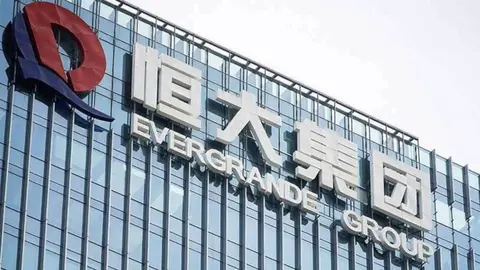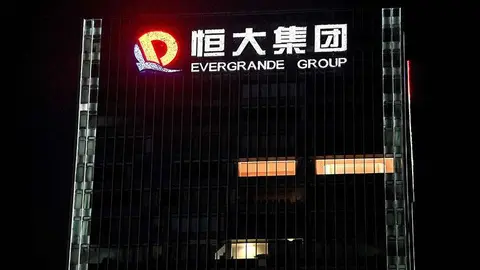More bankruptcies to come after Evergrande

The week of 22 August, Evergrande filed for US Chapter 15 bankruptcy protection for foreign companies in a creditor restructuring process, causing the Hong Kong Stock Exchange's benchmark Hang Seng index to fall 2.1% and accumulate a 20% loss from January at 17,950 points.
The US rating agency, JPMorgan, recommended paying special attention to emerging markets and their respective corporate real estate sectors as the year draws to a close.
China's debt crisis, triggered by the real estate sector, is making investors quite uneasy about the immediate future of the world's second largest economy.
Wall Street is already wondering whether Evergrande will be another Lehman Brothers-style collapse whose internal financial hole was hidden from supervisory authorities and when it could no longer be sustained over time, its bankruptcy in 2008 was just the harbinger of the financial crisis that was unfolding in the United States and would eventually spread to Europe and other economies.
Evergrande is also a large construction and real estate company that is too big to be allowed to fall and the answer lies with the Chinese government of Xi Jinping and the manoeuvres they decide to make in the coming days.
The international scenario opens another front of instability, volatility and uncertainty, the three curse words for global investors. The International Monetary Fund (IMF) had barely raised the alarm by pointing out that world GDP in the first half of the year had performed better than expected and that the resilience shown by the emerging economies was helping the global economy.
The IMF had estimated for the world (before the Evergrande bankruptcy was announced) a GDP of 3% for 2023; and in the case of China of 5.2%, a forecast that could be complicated if a contagion effect occurs and the Chinese real estate bubble ends up bursting completely.
The construction sector is one of the main pillars for the generation of wealth in countries due to its ability to link up with many other sub-sectors; that is why when a bankruptcy occurs that drags down other corporations it can end up leading an economy into recession and the government in question will need to implement financial bailouts to stop the bleeding.
A COLLATION
What happened to Evergrande? Its decline deepened in 2021 as the Jinping government imposed tight containments and a focus on controlling and curtailing the spread of the Coronavirus prevailed as a top priority for the world's most populous country.
The construction industry came to a standstill and problems just fell one after the other like dominoes: homes sold were not delivered; many real estate projects remained half-built despite pre-sales; rental prices rose, as did the price of second-hand homes and many sub-sectors began to have liquidity problems and banks curbed mortgage lending. The Chinese government responded by restricting financing programmes to property developers.
The debt mountain grew. Evergrande alone accumulated liabilities of $300 million and by the end of December 2021 gave its first warning with a wave of defaults. It filed for bankruptcy a few days ago, acknowledging $19 billion in foreign debts.
US analysts believe that the Chinese real estate corporation, Country Garden, will be the next to fall; it is an emporium that employs more than 300,000 people and has acknowledged that it has missed two payments on its billion-dollar debt.
Ratings agency Moody's has not hesitated to downgrade Country Garden's rating, saying that the Chinese multinational's liquidity problems are bigger than it admits. If it defaults on its payment schedule in September, Moody's predicts it will second Evergrande into bankruptcy; for the time being, it is under pressure to restructure its bond payments, totalling $535 million.
Moody's has previously stated that the rising number of defaults by property developers has raised the non-performing loan ratio of Chinese banks to 4.4% at the end of last year, up from 1.9% in 2020. China's real estate sector is the world's largest asset class, with an estimated value of $62 trillion.
Can't Beijing simply bail out these companies? That is unlikely. While Beijing has made some efforts to boost housing demand and free up cash, it will all depend on Jinping's decisions.
What will happen to the Chinese economy? Within the Chinese economy, real estate market activity generates 30% of the country's wealth and more than two-thirds of household wealth is linked to real estate. What will happen is a slowdown in the Asian giant?




